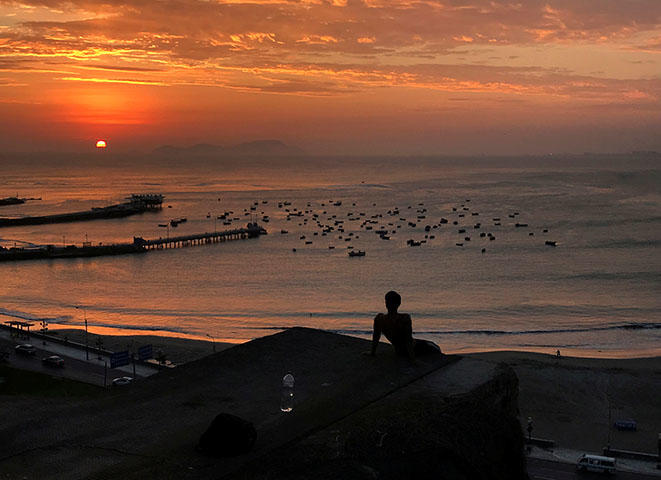New York, July 17, 2018–The Committee to Protect Journalists today called on Peruvian authorities to end their harassment of two news outlets. A government body issued summonses to the directors of news website IDL-Reporteros and the TV program “Panorama,” and the public prosecutor and police went to the offices of IDL-Reporteros to demand that it hand over materials used in the news website’s coverage of alleged government corruption.
“These blatant attempts to intimidate the press and silence investigative reporting must stop,” said CPJ Central and South America Program Coordinator Natalie Southwick. “Peruvian authorities must respect the media’s right to rely on confidential sources and information to fulfill its vital role as a watchdog and a check on corruption.”
On July 12, the Oversight and Control Commission of Peru’s National Congress issued summonses to Gustavo Gorriti of the independent news website IDL-Reporteros and Rosana Cueva of Panamericana Televisión program “Panorama,” ordering them to turn over audio recordings and reveal their sources, according to news reports.
Cueva told CPJ that the summonses threatened prosecution if the directors failed to comply.
Peru’s head prosecutor, Víctor Rodríguez, the head of the Supreme Prosecutor’s Officer for Internal Oversight, gave an order to rescind the summonses on July 13.
Gorriti told CPJ that public prosecutor Rodrigo Ruruch and four police officers also entered the IDL-Reporteros headquarters in Lima on July 10 and demanded that reporters hand over documents related to the ministry’s investigation into corruption. Gorriti said that he went to the office after hearing that police were there and asked officers to see a warrant. Ruruch was unable to produce any official documentation and left, Gorriti said.
The Public Ministry apologized on Twitter a few hours later. It said the ministry had no intention of jeopardizing journalistic work and that the public prosecutor’s office “acted accordingly with article 218 of the Penal Code.”
“The actions of the public prosecutor’s office demonstrate an attempt to intimidate and coerce news sources sparking this investigation,” Gorriti told CPJ.
The recordings include phone conversations in which members of the National Council of Magistrates and third parties allegedly discussed political favors in exchange for jobs, lenient sentences or shelving of cases, and votes for court candidacies, Adriana León, a program officer with Peruvian press freedom organization Institute of Press and Society (IPYS), told CPJ.
An investigation in the Peruvian judiciary, which started after the reports of alleged corruption were published, has led to the dismissal of three magistrates, a 60-day emergency assessment of the Court of Callao, and suspension of all appointment decisions, according to Andean Air Mail & Peruvian Times.
León, from IPYS, told CPJ she believes the public prosecutor’s office will make further attempts to get the documents. “This is only the beginning of a long battle between journalists and the Peruvian government,” she said. “This will not be the last time the public prosecutor’s office tries to interfere with journalist work and protection of sources.”
